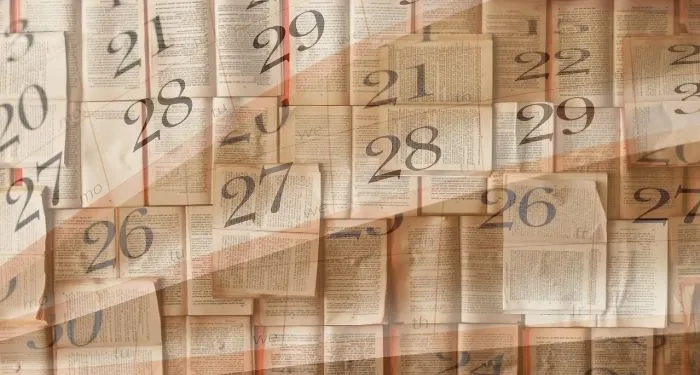Kelly is a former librarian and a long-time blogger at STACKED. She's the editor/author of (DON'T) CALL ME CRAZY: 33 VOICES START THE CONVERSATION ABOUT MENTAL HEALTH and the editor/author of HERE WE ARE: FEMINISM FOR THE REAL WORLD. Her next book, BODY TALK, will publish in Fall 2020. Follow her on Instagram @heykellyjensen.
This is the first in a two-part how-to series that will offer citizens the tools, insight, and encouragement to build local voter guides related to public school and public library elections. For years, it’s been clear that book bans, censorship, and dismantling of these democratic institutions has come thanks to the work of bad actors being appointed or elected to school and/or library boards. As more people have come to understand the vital role these boards play, so, too, has it become clear that finding information about individual candidates on the ballot can be difficult. These two posts are intended to help pro-literacy, pro-public institution citizens build or collaborate in building of voter guides to ensure that candidates who care about schools, libraries, and the young people who use them have the best shot at being elected. The first post will cover school board elections; the second, public library board elections.
Today, I’m excited to offer this space over to Frank Strong, whose candidate guides in Texas have become indispensable tools for voters. Frank is a leader in the Texas Freedom to Read Project and he’s an educator himself. You can read his work on his Substack Anger & Clarity, where he often covers censorship legislation and policy and how it directly impacts young people.
*
I’m not politically connected. I don’t have any funding. One reporter referred to me as a “guy with a Google doc.”
But for seven election cycles, I’ve been producing school board voting guides that have been part of a movement to take back Texas school boards from the ideologues and censors who swept into power in the state in 2021 and 2022.
Literary Activism
News you can use plus tips and tools for the fight against censorship and other bookish activism!
Those extremists started with considerable advantages: big money PACs like Patriot Mobile Action, which dumped hundreds of thousands of dollars into school board races in North Texas; organizing muscle from statewide and national groups like Moms for Liberty; a message—about teachers indoctrinating students with “CRT” and “gender ideology” and “sexualizing” young people with dirty books—that resonated with the cultural moment and that we weren’t prepared to answer, at least not at first.
But after some initial defeats and a few high-profile setbacks, Texans have, by and large, repelled that attempted takeover. Our efforts culminated this month with a resounding electoral rejection of book-banning school board candidates. As I wrote shortly after, it was a drubbing. Voters across Texas delivered a clear and consistent message: We’re sick of book bans, sick of attacks on educators and librarians, sick of leaders waging culture war battles at the expense of good governance.
How did we do it? Voters had to organize with a discipline and determination that surpassed the other side. And in order to do that, they had to get informed. And that is where a well-done voting guide is essential.
I started The Book-Loving Texan’s Guide to School Board Elections in the Spring of 2022. It was (and remains) an amateur endeavor–I literally just started a Google Doc in February of that year, not long after candidate filing closed, and dumped onto it every bit of information I could verify about candidates’ stances on book bans, censorship, and inclusive classrooms and libraries. I shared it with as many people as I could, and groups like Blue Action Texas and Mothers Against Greg Abbott also picked it up and used it to shape and supplement their strategies for those campaigns. In the years since, the guide has become a bit of an underground institution. Strangers email me to ask when it’s coming out, or to make sure I’m going to research certain school districts. And, more importantly, the research I’ve done has been amplified by people with larger platforms, who are capable of getting this crucial information to many more voters than I could reach alone. No one person can defeat the forces of ignorance and repression that are attacking American education right now, but all of us can do something, and creating voting guides is my way of helping.
Read on to the end for an excerpt of our featured story, “How to Read a Short Story (and Where to Find Some)!”
Creating a voter guide is not just something you can do—it’s something your community might need you to do. I made my first guide after realizing that no one else was doing the job. Local media have been hollowed out to such an extent that major newspapers don’t have enough reporters to cover the suburban and exurban board races that have been major battlegrounds over books. Wonderful nonpartisan groups like The League of Women Voters publish candidate interviews and questionnaires, but, unfortunately, candidates often treat those surveys as exercises in saying as little as possible. In Texas, statewide and national reporters have done great work connecting the dots of the big donors and political forces behind local candidates, but their reporting often comes out after elections, and can’t help voters trying to make up their minds before Election Day.
Voters need timely investigation and they need analysis, and—unfortunately—more and more that role is falling to regular citizens.
I outline the specific steps I take to research candidates in the introduction of my guide, so I won’t walk you through them here. Anyone can do them, though I will say they are time-consuming. Instead, I want to highlight three big-picture concepts that I think are essential for creating a good school board voting guide: 1) show your work; 2) stick to your key issues; and 3) don’t work alone.
When I started my voting guide, I didn’t put my name on it. That wasn’t because I was afraid of blowback (though I have received plenty, and you should prepare for it); it was because I figured no one would care what Frank Strong, English teacher in Austin, had to say about school board races around that state. Since I didn’t have the name, cachet, or credibility of legacy media, I decided to let my work speak for itself.
That’s my first piece of advice for creating an effective DIY voting guide: show your work. Accuracy matters, and so does transparency. Don’t make any claims you can’t support, and pepper your guide with links to screenshots, social media statements, and video clips that back up the claims you make. As my guide has grown and more people send me information about candidates across Texas, I have heard plenty of rumors that this candidate is great on the issue of censorship or that candidate wants to ban thousands of books. I don’t report it unless I can verify it. No vibes; just facts.
That said, sometimes I do have to make judgments based on limited information. When I do that, I explain why and I acknowledge my limitations. And I’m prepared to make public corrections or re-evaluations as new information arrives.
Relatedly, determine the key issues that guide your work, and stick to them. This can be tricky—we all know that political issues don’t exist in a vacuum, and a candidate who raged against masks in schools in 2021 and sex-ed in 2022 is very likely to be in favor of book removals in 2025. But when I started my guide, I wrote out a clear set of guiding principles, all pertaining to intellectual freedom and inclusive classrooms in schools. I decided that those would be the issues that would define my guide, and I would focus solely on candidates’ positions on those topics.
It’s not that I don’t care about whether candidates want to arm teachers (yes, that’s a debate we have in Texas!) or whether or not they supported the most recent bond vote. I have strong opinions about those and other issues that come up in school board debates. But they’re not the focus of my guide, so I try to limit what I write about candidates to how they address the specifics in my guiding principles. That not only protects me from accusations of partisanship or bias, it also saves me time.
Finally, don’t work alone. Although I started my guide by myself, its success has depended on collaboration at every stage. I started by writing about districts I knew in the Austin, Houston, and Dallas-Fort Worth areas, and the first thing I did was reach out to my friends in those areas who were teachers and librarians for tips. As my guide has grown, people now reach out to me. I vet those leads to my own standards, but I couldn’t do my work without those helpful starting points. Then, before I publish a word about a district, I try to run what I’ve written by locals to make sure I’m not missing key dynamics or misreading the situation. Finally, the guide would be worthless if it weren’t shared by key allies in local and statewide groups. Information does no good if no one sees it.
It can be dispiriting, even downright heartrending, to fight censorship in Texas. We have a lot of work to do to resist the restrictions that the current legislature is imposing on our schools and public libraries, and then to reverse the losses we’ve faced over the past few years. But our victories in local school board elections will be the foundation from which those battles will be fought. And those victories have started with informing voters about the candidates in these important, but often overlooked, races.
Book Censorship News: May 23, 2025
- Starting off with a must-read for the week, which is this piece from the folks behind Prisonculture, talking about how loving libraries isn’t enough. You need to take action.
- A federal judge has ruled that Encinitas Union School District (CA) has to notify parents about use of a book about gender identity in elementary schools so that parents can opt out.
- The Menominee Falls Village Board (WI) is cutting $300,000 from the library budget and giving it to the police instead. Why yes, this library has been a censorship-friendly place, and this is yet another tactic to serve as a reminder it’s not about the books. It’s about the institution.
- Knox County Schools (TN) have banned 65 more books from shelves. This brings their list of banned titles to over 100. The full list of titles is in this article.
- Two terrible anti-library bills on the docket for Alabama have not passed.
- This is a really great example of how to write a letter to the editor about why library board elections are important (and why caring about library issues matters to a whole community).
- New Hampshire is one step closer to permitting rampant book bans in their schools.
- Remember the teacher who got in trouble for a sign in her classroom saying that everyone was welcome? That school district, West Ada (ID), is re-reviewing their signage policy to further emphasize “neutrality” in signage. Sigh.
- Amnesty International reports on the arrests faced by book publishers in Russia over their publishing of LGBTQ+ books.
- The Blount County Schools’ Library Committee (TN) met last week to talk about more ways to ban books in the school library and in school classroom libraries.
- The Community Library Network (ID)–recall their overly strict new policies that bar young people from even requesting so-called “inappropriate” books from other libraries in the consortium–is considering a lawsuit against said consortium.
- More bad news in Kootenai County, Idaho, where another far right extremist was elected to the Community Library Network board. This place is going to become absolutely inhospitable to anyone under 18, and they already restrict their youth cardholders from getting books *they* deem inappropriate from other libraries in their consortium.
- The state of Florida threatened legal action against Hillsborough County Schools for not removing enough books from shelves, so now the district is removing upwards of 100s. Anything on the lists in this thread has to go. This is deep overreach of the actual Florida law, fwiw.
- And because the state is now targeting school districts for not following their guidelines–recall, the guidelines were that schools would self-govern over the state policies, not that the state would do it for them–now the book banning folks are eagerly targeting other districts in the state. Read the line about how school board members used their critical reading skills in deciding to keep books on shelves, rather than following the law.
- A federal judge has issued more guidance in the lawsuit against Iowa’s “don’t say gay” bill that’s been in the courts now for over a year. You can read the current guidance issued; this will be a continuing story.
- The New Hanover County Schools (NC) superintendent has upheld the decision by the book review committee not to ban the book Blended.
- This story is paywalled for me, but I got enough of what it’s about to share here. The “book banning pastor” who travels the country to complain about books at school boards made his way to Francis Howell schools (MO) this week and subsequently was asked to leave the meeting.
- “Libraries across the United States are cutting back on e-books, audiobooks and loan programs after the Trump administration suspended millions of dollars in federal grants as it tries to dissolve the Institute of Museum and Library Services.” Yep, just as expected.
- The library board for Sumner County Libraries (TN) is delaying a vote that would give collection development power to the board itself–you know, so that librarians who are trained in selecting material are now no longer able to do their job since the board (not comprised of professional librarians) gets to do it instead.
- Saskatchewan, Canada, librarians are pushing for better access to books in provincial jails.
- “Not much has happened in Read Freely Alabama’s lawsuit against the Autauga-Prattville Public Library since the plaintiffs asked for a preliminary injunction in October. But the plaintiffs added a new filing last week, arguing that a decision in a similar 10th Circuit Court case in Colorado supports their request for a preliminary injunction against the library.” This is a good precedent. (You can read about this lawsuit here).
- Now that the Ohio budget is in motion, library systems are (finally…) fighting the piece of the bill that would require hiding LGBTQ+ books from eyesight of anyone under 18.
- This story is paywalled, but it’s about how parents are pushing back against Moms For Liberty’s complaint–and subsequent successful ban of– And Tango Makes Three in Summerfield Elementary School (NC).
- Here’s a fascinating bill in Oregon: House Bill 3012 would let 16 and 17 year olds vote in school board elections. This makes sense, given this directly impacts their every day life and it’s a fantastic introduction to civic engagement and democracy.
- A reminder that it’s not “just” libraries or schools. The Black woman who owns Urban Reads in Baltimore, Maryland, has been at the receiving end of nonstop racist messages for months.
- It looks like the bill that would make it against the law for booksellers to create displays that legislators don’t like is not moving forward.
- The damage done to small and rural libraries as a result of the dismantling of the IMLS may never be undone.
- Lexington-Richland 5 Schools (SC) removed the children’s nonfiction book I Am Billie Jean King last week because it depicted, uh, the actual human person who is queer as queer in the book. This week, the decision to ban the title has been overturned. What a waste of time, money, and energy.
- West Shore schools (PA) are floating a new book policy that would ban things like Shakespeare. It’s a far-right board with no interest in actually helping students.
- “A Wyoming legislative committee decided Tuesday to draft bills to police books in libraries, taking steps down a constitutionally fraught path out of concern that literature dealing with sexuality and gender identity can corrupt minors.” I wouldn’t be shocked to see a bill like that in Idaho (sue the librarians) or Utah (a state-wide ban list) hit Wyoming.
- In a new twist in the story of 400 books being pulled from the Naval Academy, all but about 20 have been returned to library shelves.
- A look at the bill in Nevada which would take the power of book banning out of the hands of library boards and put it into the hands of courts. This one sounds bizarre, but there’s some sound logic to it–and there’s a provision in it to protect librarians from harassment.
- Temecula Valley Unified School District (CA) just had their ban on “Critical Race Theory” overturned in the state court system. This included bans on books in the district.
- Police and some parents are mad in Scottsdale, Arizona, over the school district’s decision to adapt new social studies curriculum that covers topics like Black Lives Matter and a rise in police violence against Black people.
The following comes to you from the Editorial Desk.
This week, we’re highlighting a guide to reading short stories! If you’ve been curious about what short stories have to offer and want to make them part of your reading life, get to know the form and learn where you can find some good ones so you can get started right away. Read on for an excerpt and become an All Access member to unlock the full post.
May is Short Story month, so what’s on your reading list this month? Short stories are one of my favorite things to read right now. Life’s busy, and short stories are fiction that can fit into a hectic day. Instead of using the one-chapter-per-night method to work your way through a novel, what might it look like to read a short story each evening?
I love short stories precisely because they’re every bit as interesting, complex, and beautiful as longer fiction, but they’re more realistic to read when you’ve got a lot going on.
I have a confession: I used to hate short stories. Okay, okay, maybe “hate” is too strong a word. Let’s just say that I basically refused to read them. You might be wondering why I would have such a strong aversion to short stories.
Sign up to become an All Access member for only $6/month and then click here to read the full, unlocked article. Level up your reading life with All Access membership and explore a full library of exclusive bonus content, including must-reads, deep dives, and reading challenge recommendations.



















 English (US) ·
English (US) ·